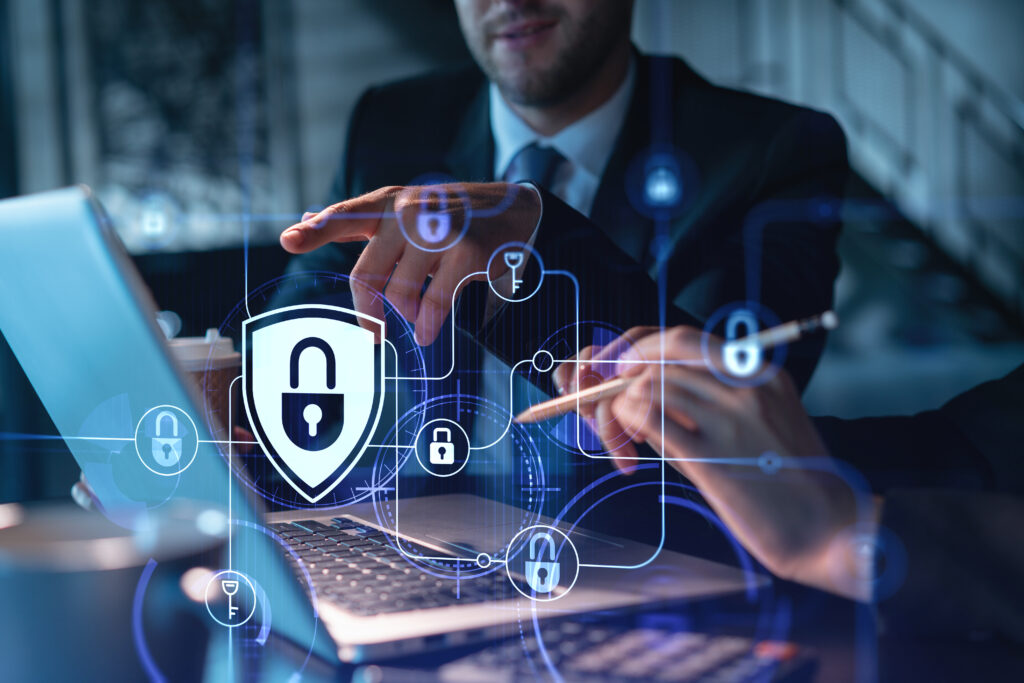Are you worried about the safety of your personal information and finances online? Don’t fret – we’ve got you covered. In this article, we’ll show you how to protect your identity and finances from cyber threats. By understanding common threats, strengthening your passwords, implementing two-factor authentication, and educating yourself on phishing scams, you can safeguard your valuable assets in the digital world. So let’s dive in and ensure that you stay one step ahead of potential cyber criminals!
Understanding Common Cyber Threats
You should be aware of common cyber threats that can compromise your identity and finances. One such threat is phishing. Phishing involves tricking you into revealing personal information, such as passwords or credit card details, by pretending to be a legitimate entity through emails or websites. Another common threat is malware, which refers to malicious software designed to harm your computer or steal sensitive information. Malware can enter your system through downloads, email attachments, or even infected websites.
Ransomware is another significant cyber threat you should know about. It encrypts your files and demands a ransom in exchange for their release. It can spread through malicious links, email attachments, or even compromised websites.
Social engineering is yet another dangerous tactic used by cybercriminals. This involves manipulating individuals into divulging confidential information through deception and psychological manipulation.
Lastly, there are identity theft and fraud schemes where criminals use stolen personal information to open accounts in your name or make unauthorized transactions.
To protect yourself from these threats, it’s crucial to stay vigilant while browsing the internet, avoid clicking on suspicious links or downloading unknown files. Additionally, regularly updating your devices’ security software and being cautious about sharing personal information online will greatly reduce the risk of falling victim to cyber threats.
Strengthening Your Online Passwords
To strengthen your online passwords, it’s important to use a combination of uppercase and lowercase letters. This simple step can significantly enhance the security of your accounts and protect your personal information from cyber threats. By mixing up the case of your letters, you make it harder for hackers to guess or crack your password using automated software.
When creating a password, consider using a mix of upper and lowercase letters throughout the entire password rather than just at the beginning or end. For example, instead of “password123,” try “pAsSwOrD321.” This small change can make a big difference in making your password more secure.
In addition to incorporating uppercase and lowercase letters, it’s also important to include numbers and special characters in your passwords. This adds another layer of complexity that makes it even more challenging for hackers to gain unauthorized access to your accounts.
Remember to avoid using easily guessable information such as birthdays or pet names. Instead, opt for random combinations that are difficult for others to associate with you personally.
Implementing Two-Factor Authentication
Implementing two-factor authentication adds an extra layer of security to your online accounts. With the increasing number of cyber threats, it is crucial to take steps to protect your identity and finances. Two-factor authentication provides an additional level of protection by requiring you to provide two forms of identification before accessing your account.
When you enable two-factor authentication, you will typically be prompted to enter your password as the first step. The second step usually involves receiving a unique code on your mobile device that you need to enter before gaining access. This code can be sent via text message, email, or generated through an authenticator app.
By requiring this second form of verification, even if someone manages to obtain your password, they won’t be able to access your account without the unique code. This significantly reduces the chances of unauthorized access and protects your sensitive information from falling into the wrong hands.
Many popular online platforms and services offer two-factor authentication as an option in their security settings. It is highly recommended that you enable this feature wherever possible for all your important accounts such as email, banking, social media, and cloud storage.
Taking advantage of two-factor authentication is a simple yet effective way to enhance the security of your online accounts. By implementing this additional layer of protection, you can have peace of mind knowing that only authorized individuals can gain access to your sensitive information.
Educating Yourself on Phishing Scams
Educate yourself on phishing scams to better protect your online accounts. Phishing scams are one of the most common methods used by cybercriminals to gain access to your personal information and financial details. By understanding how these scams work, you can arm yourself with the knowledge needed to avoid falling victim to them.
Phishing scams typically involve fraudulent emails or messages that appear legitimate and trick you into providing sensitive information such as passwords, credit card numbers, or social security numbers. These scammers often pose as reputable organizations like banks, online retailers, or government agencies in order to gain your trust.
To protect yourself from phishing scams, it’s important to be vigilant and skeptical of any unexpected emails or messages asking for personal information. Look out for red flags such as misspellings, grammatical errors, or generic greetings instead of personalized ones. Avoid clicking on suspicious links in emails and never provide sensitive information through unsecured websites.
Protect Your Identity
Western Marketing has the expertise and solutions to help you stay safe in an ever-evolving digital landscape. We offer comprehensive identity protection services that include advanced monitoring, secure data storage, and proactive threat prevention. Don’t wait until it’s too late – contact us today to learn more about how we can safeguard your personal information and financial well-being.

